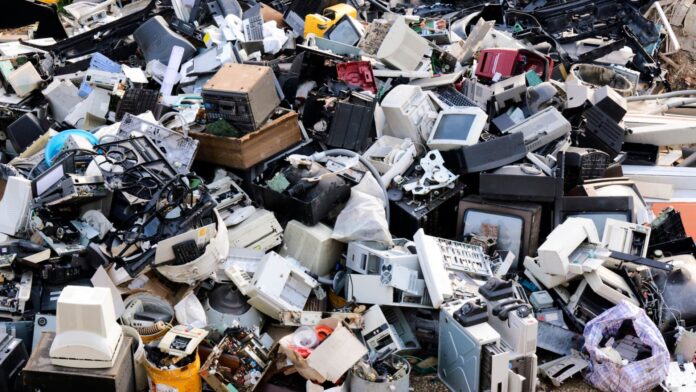The Covid-19 lockdowns has led to a UK tech sales boom, but concerns are rising over the amount of e-waste being produced.
Last year the Royal Society of Chemistry discovered that there could be 40 million or more unused devices being hoarded in drawers and cupboards around the UK. It has now found that this problem is growing even more, with 12.8% of the 2,000 UK residents surveyed saying they has acquired new IT equipment to enable them to work from home during the pandemic. Of these, nearly as many said they had put redundant tech in the bin (10.8%) as said they recycled it (12.8%). A further 10% said they had a stockpile of old IT equipment they didn’t need as a result of changing their working habits.
Professor Tom Welton, president of the Royal Society of Chemistry, said: “Clearly the coronavirus pandemic caused a rapid change to our work and lifestyle patterns, but a significant unintended consequence we are now facing is a rapid increase to the UK’s already growing e-waste crisis. That nearly as many people are binning their old tech as recycling it is a huge concern.
“We increasingly think about the sustainability of other items around the home, such as plastics and cardboard packaging. If we’re to have sustainable technology, we need to start thinking in the same way about our old gadgets, or we risk running out of the elements we need to produce these items while continuing to exacerbate the environmental damage caused by the consumer tech industry.”
- As of 1 January 2021 retailers distributing electrical and electronic equipment are now required to offer in-store take back of items equivalent to those sold to consumers in-store. In addition, retailers with greater than 400 square metres of floor space will be required to accept all items of very small Waste Electrical and Electronic Equipment (WEEE) regardless of whether customers are replacing the item by buying new products or not. Very small WEEE is defined as items with dimensions no greater than 25cm on any side/edge.




